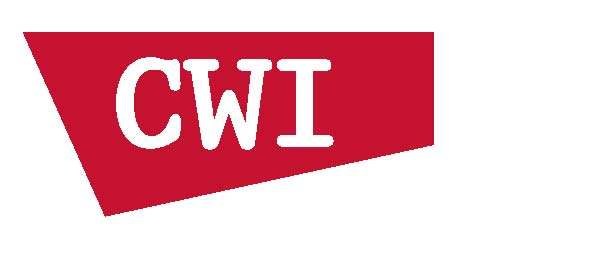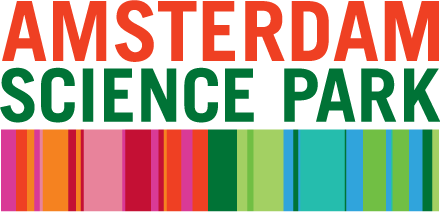CONCUR 2019
The 30th International Conference on Concurrency Theory
Amsterdam, the Netherlands, August 26-31, 2019
CALL FOR PAPERS
CONCUR 2019
The purpose of the CONCUR conferences is to bring together researchers, developers, and students in order to advance the theory of concurrency, and promote its applications.
Invited speakers
- Marta Kwiatkowska - University of Oxford (UK)
- Kim G. Larsen - Aalborg University (Denmark)
- Joël Ouaknine - Max Planck Institute for Software Systems (Germany)
- Jaco van de Pol - Aarhus University (Denmark)
- 24th International Conference on Formal Methods for Industrial Critical Systems (FMICS 2019)
- 17th International Conference on Formal Modelling and Analysis of Timed Systems (FORMATS 2019)
- 3rd International Workshop on Methods and Tools for Distributed Hybrid Systems (DHS 2019)
- Combined 26th International Workshop on Expressiveness in Concurrency and 16th Workshop on Structural Operational Semantics (EXPRESS/SOS 2019)
- 2nd International Workshop on Recent Advances in Concurrency and Logic (RADICAL 2019)
- 4th International Workshop on Timing Performance Engineering for Safety Critical Systems (TIPS 2019)
- 8th IFIP WG 1.8 Workshop on Trends in Concurrency Theory (TRENDS 2019)
- 9th Young Researchers Workshop on Concurrency Theory (YR-CONCUR 2019)
All dates are AoE.
Submissions are solicited in semantics, logics, verification and analysis of concurrent systems. The principal topics include (but are not limited to):
- Basic models of concurrency such as abstract machines, domain-theoretic models, game-theoretic models, process algebras, graph transformation systems, Petri nets, hybrid systems, mobile and collaborative systems, probabilistic systems, real-time systems, biology-inspired systems, and synchronous systems;
- Logics for concurrency such as modal logics, probabilistic and stochastic logics, temporal logics, and resource logics;
- Verification and analysis techniques for concurrent systems such as abstract interpretation, atomicity checking, model checking, race detection, pre-order and equivalence checking, run-time verification, state-space exploration, static analysis, synthesis, testing, theorem proving, type systems, and security analysis;
- Distributed algorithms and data structures: design, analysis, complexity, correctness, fault tolerance, reliability, availability, consistency, self-organization, self-stabilization, protocols;
- Theoretical foundations of architectures, execution environments, and software development for concurrent systems such as geo-replicated systems, communication networks, multiprocessor and multi-core architectures, shared and transactional memory, resource management and awareness, compilers and tools for concurrent programming, programming models such as component-based, object- and service-oriented.
CONCUR 2019 solicits high quality papers reporting research results and/or experience related to the topics mentioned below. All papers must be original, unpublished, and not submitted for publication elsewhere.
Each paper will undergo a thorough review process. The paper may be supplemented with a clearly marked appendix, which will be reviewed at the discretion of the program committee.
The CONCUR 2019 proceedings will be published by LIPIcs.
Papers must be submitted electronically as PDF files via EasyChair.
Papers must not exceed 14 pages (excluding references and clearly marked appendices) using the LIPIcs style.
A special issue dedicated to selected papers from CONCUR'2019 will appear in Logical Methods in Computer Science.
- Christel Baier, TU Dresden (Germany)
- Jiri Barnat, Masaryk University, Brno (Czech Republic)
- Benedikt Bollig, CNRS, Paris (France)
- Borzoo Bonakdarpour, Iowa State University (USA)
- Ilaria Castellani, INRIA Sophia Antipolis (France)
- Taolue Chen, Birkbeck, University of London (UK)
- Rance Cleaveland, University of Maryland (USA)
- Yuxin Deng, East China Normal University, Shanghai (China)
- Josée Desharnais, Université Laval (Canada)
- Adrian Francalanza, University of Malta (Malta)
- Wan Fokkink (co-chair), Vrije Universiteit Amsterdam (The Netherlands)
- Ansgar Fehnker, University of Twente (The Netherlands)
- David de Frutos-Escrig, Universidad Complutense de Madrid (Spain)
- Yuxi Fu, Shanghai Jiao Tong University (China)
- Rob van Glabbeek (co-chair), CSIRO, Sydney (Australia)
- Alexey Gotsman, IMDEA Software Institute, Madrid (Spain)
- Radu Grosu, TU Wien (Austria)
- Ichiro Hasuo, National Institute of Informatics, Tokyo (Japan)
- Marieke Huisman, University of Twente (The Netherlands)
- Barbara König, University of Duisburg-Essen (Germany)
- Gerald Lüttgen, University of Bamberg (Germany)
- Bas Luttik, Eindhoven University of Technology (The Netherlands)
- Anca Muscholl, Université Bordeaux (France)
- Uwe Nestmann, TU Berlin (Germany)
- Jun Pang, University of Luxembourg (Luxembourg)
- Jean-François Raskin, Université Libre de Bruxelles (Belgium)
- Grigore Rosu, University of Illinois at Urbana-Champaign (USA)
- Jiri Srba, Aalborg University (Denmark)
- Simone Tini, University of Insubria (Italy)
- Frank Valencia, École Polytechnique de Paris (France)
- James Worrell, University of Oxford (UK)
- Gianluigi Zavattaro, University of Bologna (Italy)
- Javier Esparza, TU München, Germany, chair
- Pedro D'Argenio, National University of Cordoba, Argentina
- Wan Fokkink, Vrije Universiteit Amsterdam, The Netherlands
- Joost-Pieter Katoen, RWTH, Germany
- Catuscia Palamidessi, INRIA and Ecole Polytechnique, France
- Davide Sangiorgi, University of Bologna, Italy
- Jiri Srba, Aalborg University, Denmark

